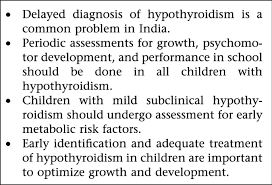The thyroid is the butterfly-shaped gland situated in the middle front of the neck. it produces the thyroid hormones which is among the most important hormones of our body and controls or affects the growth and functioning of every organ and system. Its function itself is controlled by the pituitary gland of the brain.
Change in its shape and function produces many diseases.
FUNCTION OF THYROID GLAND
Thyroid hormones control and metabolism. Metabolism is a process where the food is eaten digested and transformed into energy. This energy is used by every organ of the body for smooth functioning.
The thyroid controls your metabolism with a few specific hormones — T4 (thyroxin) and T3 (triiodothyronine). These two hormones are created by the thyroid and they tell the body’s cells how much energy to use. When your thyroid works properly, it will maintain the right amount of hormones to keep your metabolism working at the right rate. As the hormones are used, the thyroid creates replacements.
Thyroid gland is controlled by another glad called pituitary gland. It is located in the Located in the brain, the pituitary gland monitors and controls the amount of thyroid hormones in your bloodstream. Any variation in the secretion of thyroid hormones is immediately sensed and adjusted by the pituitary gland by secreting another hormone That is known as thyroid stimulating hormone (TSH).
WHAT IS THYROID DISEASE
This is a general term used for medical conditions for the change in the amount of secretions of the gland or change in its size and shape. . When too much thyroid hormone is secreted, your body consumes too much energy .
This is called hyperthyroidism. Using energy too make you tired — it can make your heart beat faster, cause you to lose weight without trying and even make you feel nervous. On the other side, when your thyroid secretes less thyroid hormone. This is called hypothyroidism. When you have too little thyroid hormone in your body, it can make you feel tired, you might gain weight and you may feel too much coldness.
These two main disorders can be caused by a variety of conditions. They can also be heriditory.
WHO ARE AT MORE RISK
Thyroid disease can affect anyone — male, female, men, infants, children, teenagers and the elderly. It can be present at birth (typically hypothyroidism) and it can develop as you age (often after menopause in women).
Thyroid disease is very common, . A woman is about five to eight times more likely to suffer with a thyroid condition than a man.
You may be at a higher risk of developing a thyroid disease if you:
- If you have a family history.
- Have some of these medical conditions such as pernicious anemia, diabetes type 1, Turners syndrome, adrenal disease, rheumatism, S J syndrome.
- some Medication
- Are older than 60, especially in women.
- Have previous history of any thyroid disease.
SYMPTOMS AND CAUSES
The two main types of thyroid disease are hypothyroidism and hyperthyroidism. Both conditions can be caused by other diseases that impact the way the thyroid gland works.
Conditions that can cause hypothyroidism
- Thyroiditis: This condition is an inflammation (swelling) of the thyroid gland. Thyroiditis can lower the amount of hormones your thyroid produces.
- Hashimoto’s thyroiditis: A painless disease, Hashimoto’s thyroiditis is an autoimmune condition where the body’s cells attack and damage the thyroid. This is an inherited condition.
- Postpartum thyroiditis: This condition occurs in 5% to 9% of women after childbirth. It’s usually a temporary condition.
- Iodine deficiency: Iodine is used by the thyroid to produce hormones. An iodine deficiency is an issue that affects several million people around the world..
- A non-functioning thyroid gland: Sometimes, the thyroid gland doesn’t work correctly from birth. If left untreated, the child could have both physical and mental issues in the future. All newborns are given a screening blood test in the hospital to check their thyroid function.
The most common symptoms

- Fatigue
- Obesity
- Irregular menses (female)
- Delayed puberty
- Slow growth
- Mood changes
- Hair fall







